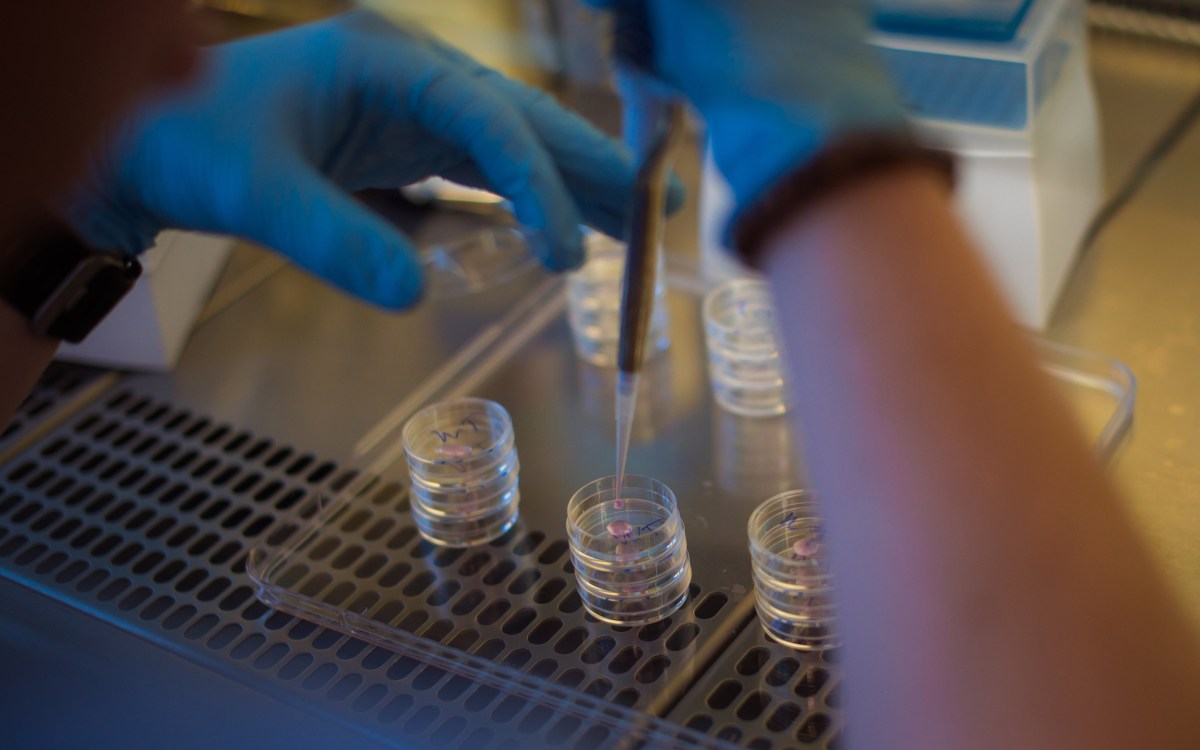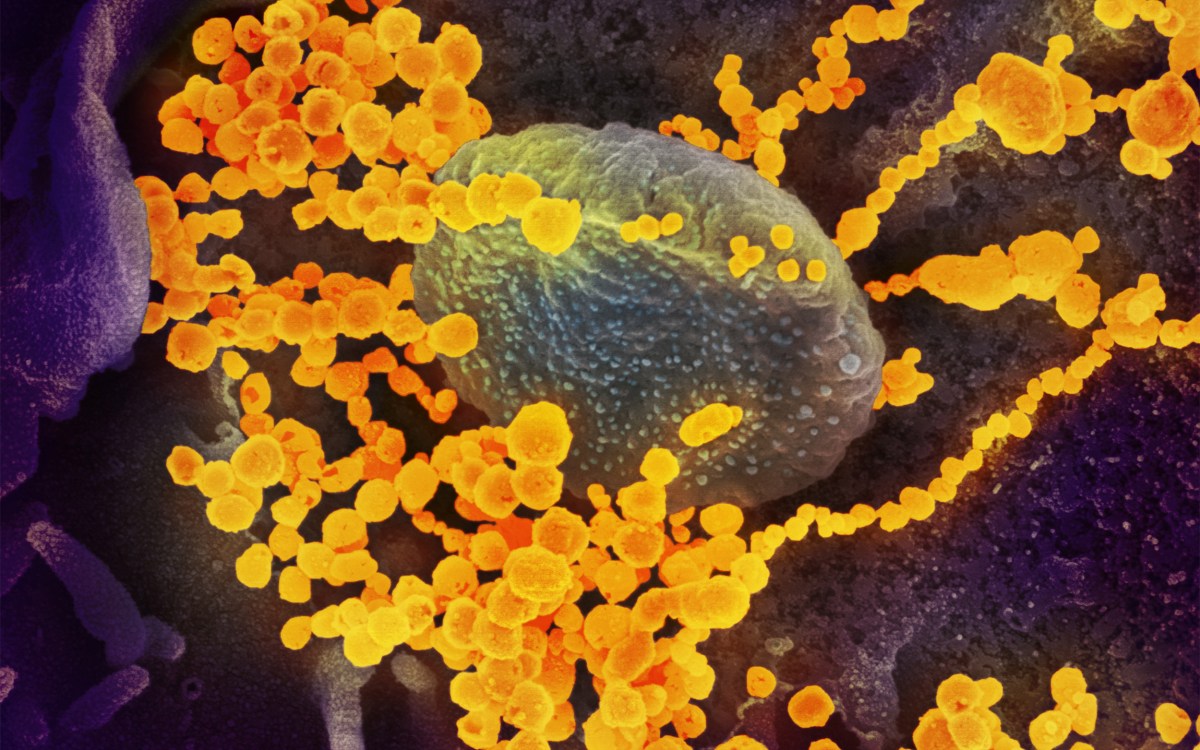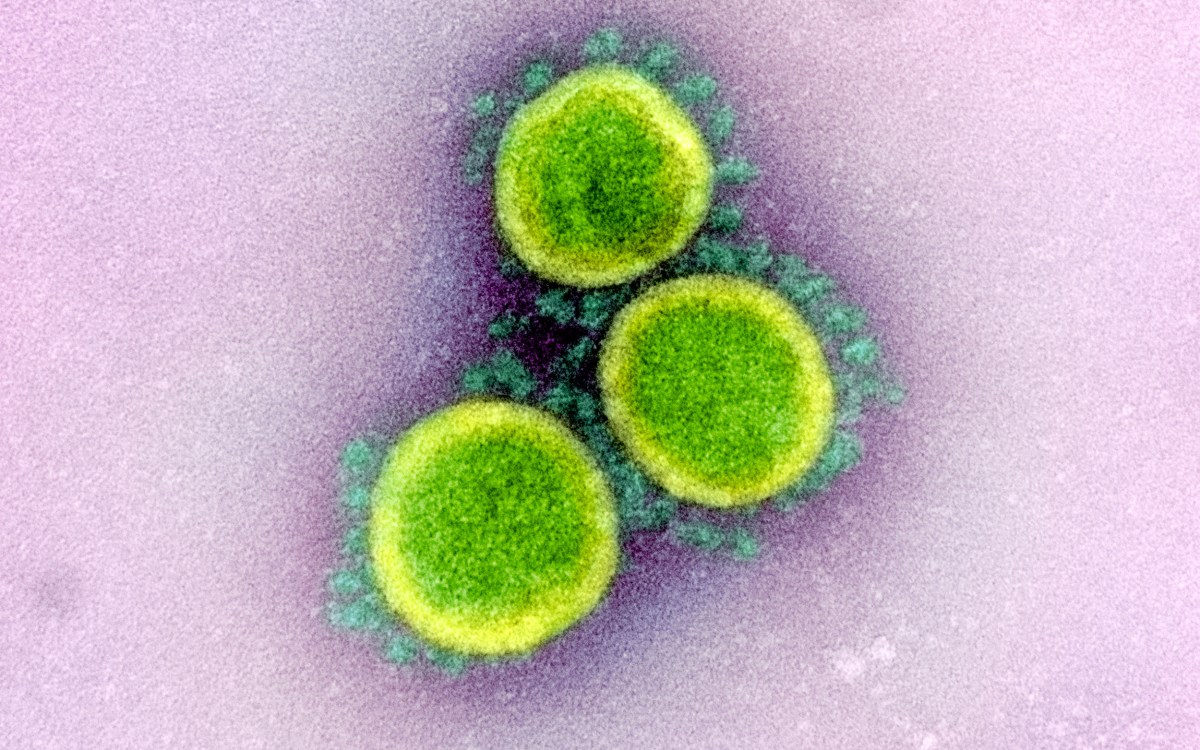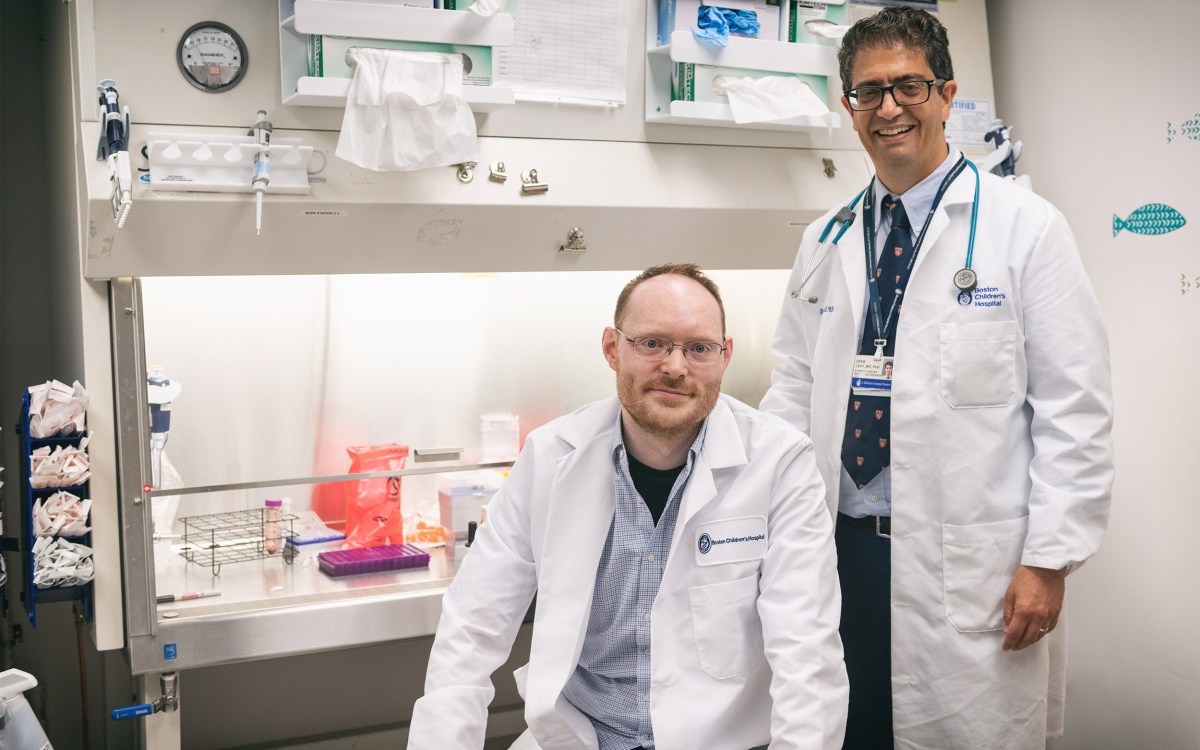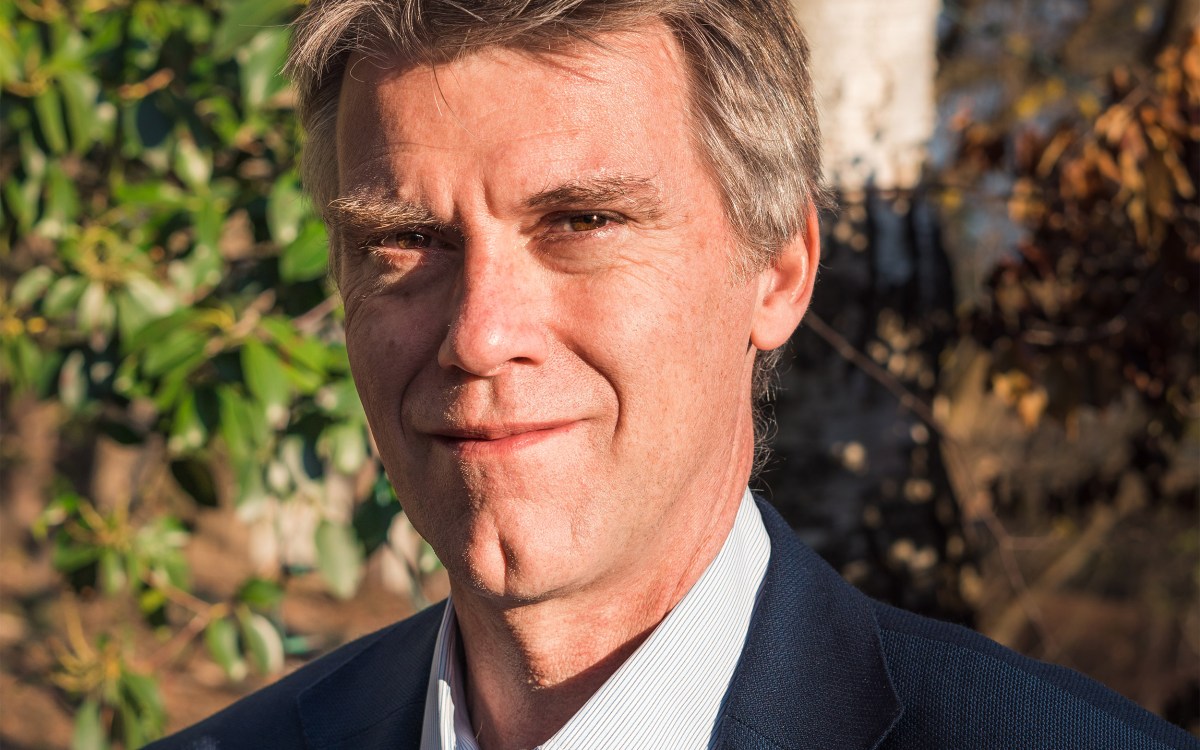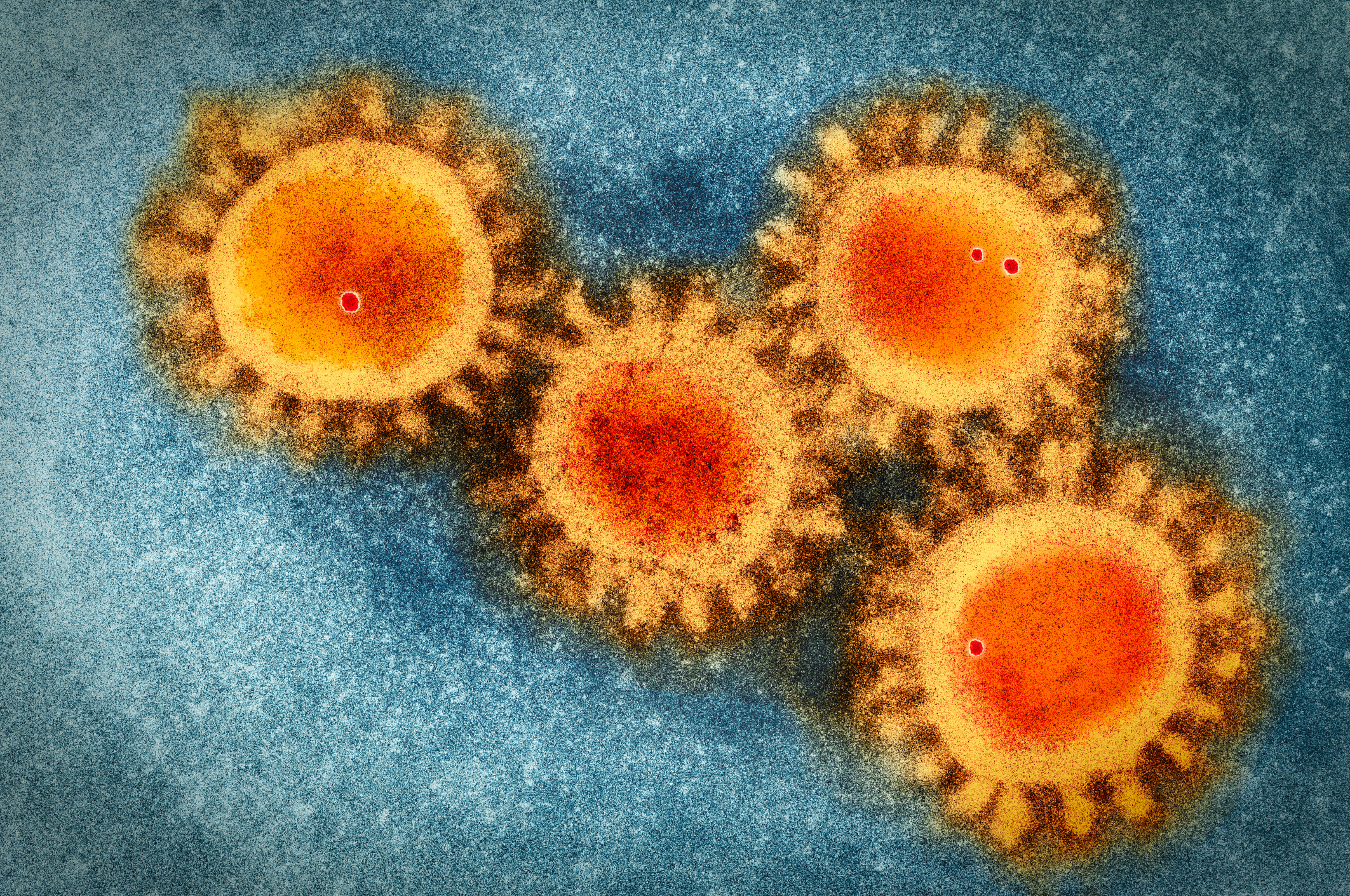
An electron microscopy photo of the coronavirus COVID-19.
Getty Images
$16.5 million awarded to projects to fight COVID
MassCPR collaboration funds plans with promise to help in a year
This is part of our Coronavirus Update series in which Harvard specialists in epidemiology, infectious disease, economics, politics, and other disciplines offer insights into what the latest developments in the COVID-19 outbreak may bring.
A scientific consortium formed to fight COVID-19 has awarded $16.5 million to 62 research projects focused on aspects of the pandemic ranging from vaccines and treatments to explorations of immunity to divining its still-unknown reach across society. The projects’ common feature is that all have the potential to impact patients within the next 12 months.
The awards, by the Harvard-led Massachusetts Consortium on Pathogen Readiness (MassCPR), come at a moment when additional tools to fight the novel coronavirus are badly needed. Nations hit hard by the pandemic’s first wave are moving toward reopening economies that were slammed shut by the virus’ rapid and deadly spread. Global cases have topped 4 million, with more than 280,000 deaths, according to the World Health Organization, and public health experts warn that absent the development of new treatments or vaccines, illness and death can resurge if social distancing and other restrictions are eased too quickly.
“The COVID-19 pandemic is a watershed moment in human history and has been nothing short of a rallying cry to those of us who have dedicated our lives and careers to science and medicine,” said Harvard Medical School Dean George Q. Daley, one of the consortium’s leaders. “MassCPR is our response to this historic event.”
The consortium, launched in early March, is a collaborative effort that includes scientists and clinicians from Harvard, MIT, Boston University, Tufts University, the University of Massachusetts, and local biomedical research institutes, biotech companies, and academic medical centers. Its aim is to fight COVID-19 and the SARS-CoV-2 virus that causes it, as well as to prepare for future epidemics.
“The true value of MassCPR is bringing us together to discuss the priorities and challenges we are all facing.”
Ann Moormann, University of Massachusetts Medical School,
The 62 projects, conducted by researchers from 15 institutions, including Tufts, UMass, Boston University, and Harvard and its teaching hospitals, address the consortiums’ main priorities: vaccine development, new therapies, diagnostic tools, clinical management, epidemiology, and understanding how the virus impacts the body.
“I think many of us pursue careers in science hoping that we would someday have the opportunity to work on something that truly had meaning and that would allow us to work together in collaboration rather than competition,” said Bruce Walker, the Phillip T. and Susan M. Ragon Professor of Medicine at Harvard Medical School and a member of the collaboration’s governing committee. “I feel we have found that here in MassCPR.”
The consortium now includes hundreds of researchers, physician-scientists, frontline clinicians, epidemiologists, and more working to share knowledge, ideas, and resources.
“Drawing from the incredible expertise of our biomedical ecosystem in Massachusetts, we have grown to over 500 members, dedicated to transcending our institutional loyalties to bring collaborative scientific solutions to this pandemic,” said Arlene Sharpe, the George Fabyan Professor of Comparative Pathology, chair of the HMS Department of Immunology, and one of MassCPR’s governing committee members. “The rapid progress catalyzed by our collective efforts is really inspiring.”
Ann Moormann, a professor of medicine at the University of Massachusetts Medical School, received funding to conduct SARS-CoV2 sero-surveys, enrolling emergency room doctors and nurses at the UMass Memorial Medical Center in Worcester, their household members, and as a voluntary part of employees’ re-entry to research labs at UMass Medical School. The study will examine one of today’s key issues — what can be learned about past exposure and the virus’ spread through the population, in this case is a cohort of health care workers — using antibody tests. Study participation will be accompanied by a questionnaire probing possible exposures and social distancing practices and includes a 12-month longitudinal component that will measure another important question: how long antibodies against SARS-CoV-2 last in the months after exposure.
A second part of the study will focus more closely on the cohort’s children and younger adults in an effort to answer questions about observed differences in disease severity associated with age. Moormann and colleagues will examine whether children and adults use different components of their immune system in fighting the virus.
Moormann said that as important as funding has been, the open collaboration enabled by the MassCPR network, including videoconference working sessions at which researchers, instead of waiting for others’ work to be formally published, openly discuss results, constantly shifting challenges presented by the pandemic, and new information.
“The true value of MassCPR is bringing us together to discuss the priorities and challenges we are all facing,” Moormann said. “The MassCPR working sessions provide a collaborative setting in which to integrate new information and more rapidly respond to the ever-evolving landscape of this pandemic.”
“The impact of their work will be measured not only in discoveries and new knowledge, but also in lives saved and other improved health outcomes.”
Larry Bacow, Harvard President
Timothy Erickson, associate professor of emergency medicine at HMS and Brigham and Women’s Hospital, plans to use award funds to test wastewater for the SARS-CoV-2 virus, which will shed light on the extent to which it has spread beyond known cases. Work is currently underway analyzing wastewater from the Deer Island treatment plant, and results have been consistent with a very large asymptomatic population in the Boston area, Erickson said.
Conducted with co-principal investigators Peter Chai at HMS, Brigham and Women’s Hospital, and the Fenway Institute, Eric Alm at MIT, and Mariana Matus at Biobot Analytics, the project will also deploy robots to sample sewage from manhole access spots in Somerville, Cambridge, Salem, Lawrence, Lowell, and Lexington, Mass. By sampling specific sewer lines, the team can measure SARS-CoV-2 in particular communities, as well as how it changes over time. Erickson said the data will be used to generate open source maps of the outbreak that can inform public health efforts.
More like this
“By analyzing virus in catchments serviced by specific sewer lines, we can generate geospatial maps that accurately describe the community presence and concentration of SARS-CoV-2 to better forecast the spread and impact of the outbreak,” Erickson said.
The MassCPR consortium issued a call for proposals in late March and within a week had received 448 applications from investigators across Massachusetts. Dozens of expert reviewers took part in a multiphase evaluation process, identifying the most promising proposals, with a strong chance of impacting patient care within a year.
MassCPR was enabled by a research agreement between Harvard and the China Evergrande Group that provided support shared equally between Massachusetts-based researchers and those at the Guangzhou Institute of Respiratory Health in China. Funding for the awards included the first segment of funds from the China Evergrande Group, as well as $1 million or more from Mark and Lisa Schwartz, the Massachusetts Life Sciences Center, and the Bertarelli Foundation, as well as commitments from other donors.
“It is inspiring to see scientists from so many Boston-based institutions come together to take action in the face of this pandemic,” said Harvard President Larry Bacow. “The impact of their work will be measured not only in discoveries and new knowledge, but also in lives saved and other improved health outcomes.”



